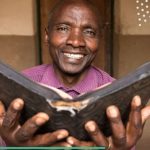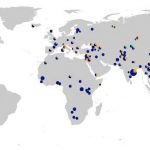![sub-buzz-24639-1468028921-1[1]](https://nextcompareinsurance.com/wp-content/uploads/2016/09/sub-buzz-24639-1468028921-11.jpg)
Thomas Dixon can’t remember what happened yesterday, or even last week, but he’s pretty sure he spent the long weekend camping.
“I’m almost sure we didn’t tent it,” the Philadelphia resident told BuzzFeed News. He’s also fairly certain his parents loaned him their extra camper van.
They didn’t go fishing, but Dixon thinks they probably went on a hike. There were burgers, pasta salad, and toasted s’mores for dinner, that’s for sure, but he can’t remember in what order he ate them.
Dixon, 32, has episodic memory loss, a version of amnesia he owes to being hit by a car almost six years ago, an accident that left him with a severe head injury. While he can reason through the events of the last few days — “I certainly wasn’t in China” — and recall essential details like the layout of his house, he has no immediate recollection of events that occurred since the accident.
Despite this disability, Dixon said, “I feel pretty normal.” In 2011, he ran the Philadelphia half marathon and was even accepted as a member of Mensa, an international group of high-IQ brainiacs. He completed a Master’s program in educational psychology. Every New Year’s Eve he plans a trip to a new international destination – last year it was Mexico, this year it will be Sweden.
He hasn’t been able to do this without some help. Aiding Dixon is a suite of life-tracking tools that he’s MacGyvered to keep time, people, and events straight. For four years he used a private Twitter account to log his life. These days, he uses an app he’s called ME.mory that he custom-built to serve as his brain’s external hard drive.
Dixon assiduously logs daily events — a run, a shopping trip with mom, a session clipping his toenails, everything he ate for breakfast. Though these details may seem mundane to most, they empower him to piece together events that his brain has lost the ability to record and preserve.
Every few hours, he pulls out his phone to make a few notes, or to search for info that he wants to know but can’t recall.
“I tell people, this was the right injury at the right time,” Dixon said. “I would be SOL, right, if I had this injury in the 1980s — without cell phones, without internet connection, without modern technology.”
Dixon is betting on the wild notion that lots of other people – not just clinical amnesiacs – will have use for a service like ME.mory.
“We don’t remember a majority of our own lives,” Dixon said. “People will say to me, ‘So this is an app for people with memory loss.’ And I will look at them and say, ‘You mean you?’”
![sub-buzz-21479-1468080427-1[1]](https://nextcompareinsurance.com/wp-content/uploads/2016/09/sub-buzz-21479-1468080427-11.jpg)
In December 2010, the aspiring psychiatrist was on a run near his parents’ house when he was hit by a car. The accident landed him in the hospital with a punctured lung and hard knock to the head.
The first day or two, Dixon said, he’d wake up with questions: “Where am I? How did I get here?” Then he’d go back to sleep. Waking a few hours later, the questions were back. “It would happen over and over and over.”
Max Shmidheiser, a clinical neuropsychologist at the MossRehab Concussion Center in Philadelphia who worked with Dixon, said that his injury is characterized by two features: The memories he formed before the accident remained intact. But he had lost the ability to lay down new memories, or recall them with ease.
Severe traumatic brain injuries like Dixon’s usually have a global impact on the brain: tiny tears in neurons and scattershot arterial bleeds. Hardest hit was Dixon’s medial-temporal lobe, the memory-making center of his brain.
After being summoned to Dixon’s room with the same queries over and over again, the nurses left a note by his bed reminding him that he’d been in an accident.
He began using a diary to log events and activities. But before the year was out, Dixon was fiddling with tech alternatives.
Because he couldn’t efficiently hunt down old details in a paper diary, he started logging his notes in a private Twitter account.
Over the next four and a half years, Dixon made some 29,000 entries. But he found Twitter’s search capabilities lacking as well.
So he decided to build a tool that had better recall. Last July, he made his first entry in a prototype. This April, he dropped the app on iTunes.
![sub-buzz-3186-1468080932-4[1]](https://nextcompareinsurance.com/wp-content/uploads/2016/09/sub-buzz-3186-1468080932-41.jpg)
In launching this entrepreneurial experiment, Dixon’s larger point is that the way people access and store information is in a constant state of flux. Just a decade ago, most people memorized phone numbers. But smartphones have us relying on hardware to remember the contacts for even our closest friends and family.
“Outsourcing of memory — it’s something we do more and more,” Tomás Ryan, a research fellow at MIT who studies how memories are lost and found, told BuzzFeed News.
“Ever since the time we’ve been writing on stone, we’ve been outsourcing,” Ryan said. Those basic technologies freed up human our brains up to store other kinds of information, and also allowed us to communicate as a species.
While notes on Twitter do provide a handy crutch to keep Dixon aware of his present and past, Ryan said that written notes, or even a video recording of, say, an afternoon at the beach, cannot fully replace true episodic memory. “It doesn’t include your emotional state at the time, and what you as an individual were paying attention [to],” he said.
![sub-buzz-7172-1468080507-1[1]](https://nextcompareinsurance.com/wp-content/uploads/2016/09/sub-buzz-7172-1468080507-11.jpg)
Dixon is candid about his condition – he said he often explains his memory loss to new acquaintances in the first conversation.
People almost immediately bring up the 2004 flick 50 First Dates, in which Drew Barrymore plays a romantic lead with short-term memory loss. Or, they’ll ask if he is similar to the lead character in Memento, the 2000 thriller in which an amnesiac investigator is hunting for his wife’s killer.
The reality is less dramatic, Dixon said. He usually explains that logging his life is more like making a grocery list. “It’s not funny or memorable — honestly it’s just real life,” Dixon’s girlfriend, Lindsey Graham, told BuzzFeed News.
Graham and Dixon met on an online dating site; she read about his memory condition on his profile and was full of questions, and impressed by his honesty. She wrote to him first.
On the anniversary of their first meeting, they scrolled through Dixon’s entries and revisited their favorite moments. Graham sometimes writes posts too. “So now the longer we continue to date we can go back and look at what we did,” Graham said. “I like that he has that there with him.”
On a recent June evening, Graham and Dixon were out in Philadelphia for a live music show when Graham remembered there was an Indian restaurant nearby she liked. She wanted to go back, but couldn’t recollect the name — would Dixon check his phone?
The restaurant was one that Graham and Dixon had visited ten months before, on August 1 of last year, the notes said. They headed over for a second trip.











RSS